On September 24, 2022, a new cultural facility will enhance the already magnificent Ksar of Aït Ben Haddou, a jewel of architectural heritage located near Ouarzazate and recognized by UNESCO in 1987 as a World Heritage Site. The result of extensive work conducted since 2016 between the inhabitants of the Ksar and the Moroccan NGO We Speak Citizen, the House of Orality will open its doors, embarking on a long-term mission to promote Morocco’s intangible cultural heritage, of which oral traditions are the most emblematic representation. All these cultural treasures, long forgotten, are now at risk of disappearing. Yet, they are the vibrant bearers of Morocco’s identity.
Beyond all human conditions, the oldest cosmogonies inscribe sound as a founding event in the plural creation of life, and the great sacred texts, such as the Vedas, the Quran, the Bible… were first transmitted orally before being fixed in writing.
Likewise, it is through orality that the first testimonies of humanity’s tumultuous adventure were rendered, through the narration of its heroic epics, as splendidly illustrated by Homer’s Iliad and Odyssey, along with myriad mythologies, tales, and melodies all united in a single chorus to express and celebrate loudly who we are as humans and where we are going, attempting thereby to somewhat forget our fragility and isolation in the vastness of space and time.
The Iliad, along with the Odyssey, forms one of the two great foundational epics of ancient Greek literature attributed to the legendary aoidos (epic poet and reciter) Homer. Source: Wikipedia”
Morocco is no exception. The long existence of its people is punctuated by stories told around a fire, listening to the elders, or recited in poetry with sound and dance during a village celebration.
Here, as everywhere else, words have been used to transmit customs and traditions, those of tribes or families, as well as fundamental know-how, such as the crafts anchored in Morocco’s identity, which have managed to overcome the centuries thanks to the oral teaching from master to apprentice.
All these words passed from one to another and from generation to generation, all these exchanges of experiences, all these ways of life, memories, tales, all these communal rituals are indeed the jewels of this intangible part of Morocco’s cultural heritage, this intangible continent of its ancestral identity, and as such, they deserve recognition, valorization, and protection.
This is the heart of the project of the House of Orality of the Ksar of Aït Ben Haddou.
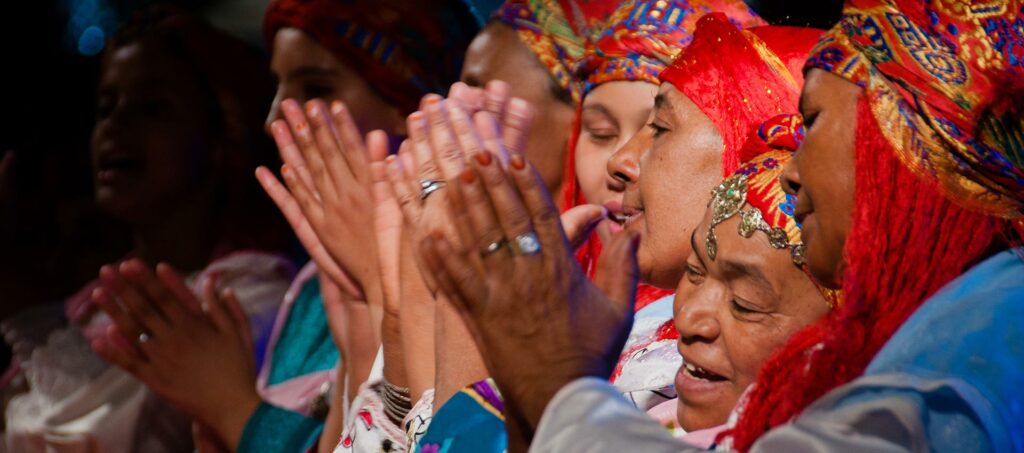
A triple mission in service of Morocco’s intangible heritage
The recognition of this heritage involves its meticulous observation in order to uncover its countless components. That is why the primary mission of the House of Orality will be to serve as a research center, offering the public the results of in-depth studies on various aspects of this intangible heritage each year, both through exhibitions in its publicly accessible premises and through periodic publications that will enrich the documentary resources and thus better support the work of researchers and enthusiasts.
During its inaugural year of activity, the House of Orality will focus on presenting the art of weaving in all its facets throughout the history and life of rural Morocco, from sheep to loom, including wool and its precious processing. Visitors to this discovery journey will grasp the major virtue of orality, which is to connect all the constituents of heritage.
Highlighting these jewels of Morocco’s intangible heritage naturally involves their presentation to the public for discovery and admiration in their elegance. However, the House of Orality aims to be more than just a museum and will offer its visitors a sensitive exploration of all these heritage elements presented and encountered for what they truly are: life experiences.
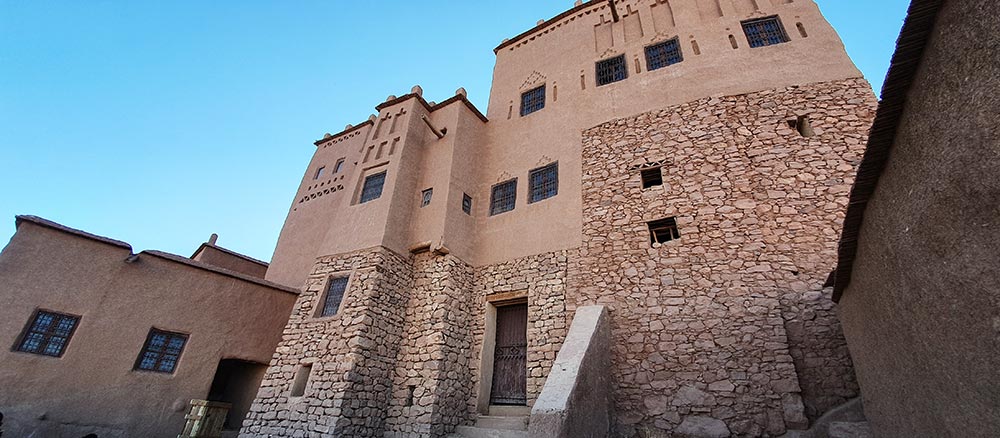
Orality embodies humanity’s vivacity
Loubna Mouna, head of the NGO We Speak Citizen, clearly emphasizes this dimension, which highlights the primary challenge faced by all stakeholders in this project: how to pay homage to Morocco’s intangible heritage without fossilizing it in a museum or distorting it through folklorization.
« The House of Orality is not a museum, but rather a place where visitors enter to come out with the experience of having lived a ritual as it was and is experienced in the human communities of Morocco. »
Loubna Mouna
The exercise is not simple, and it is unprecedented. It echoes the difficulties of bringing to life the intangibility of a heritage deeply rooted in the distant past, at a time when our era is fervently devoted to the rhythm of immediacy and ephemerality.
For Mustapha Merouan, the curator of the House of Orality, this paradox should in no way hinder efforts to valorize and protect this heritage, particularly orality. Indeed, according to him, orality, regardless of the civilization in which it is observed, is precisely characterized by community and immediacy.
Orality can thus be understood as the constantly renewed illustration of the abundant life of our human dimension in its existence, its journey, its evolution, and its future.
« Orality beautifully expresses humanity’s vivacity. »
Mustapha Merouan
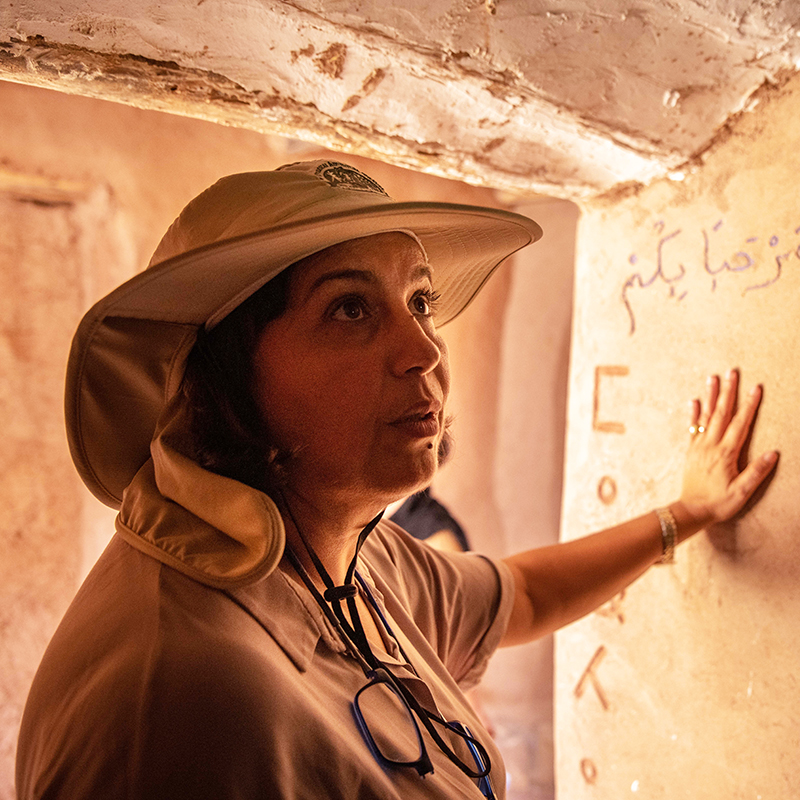
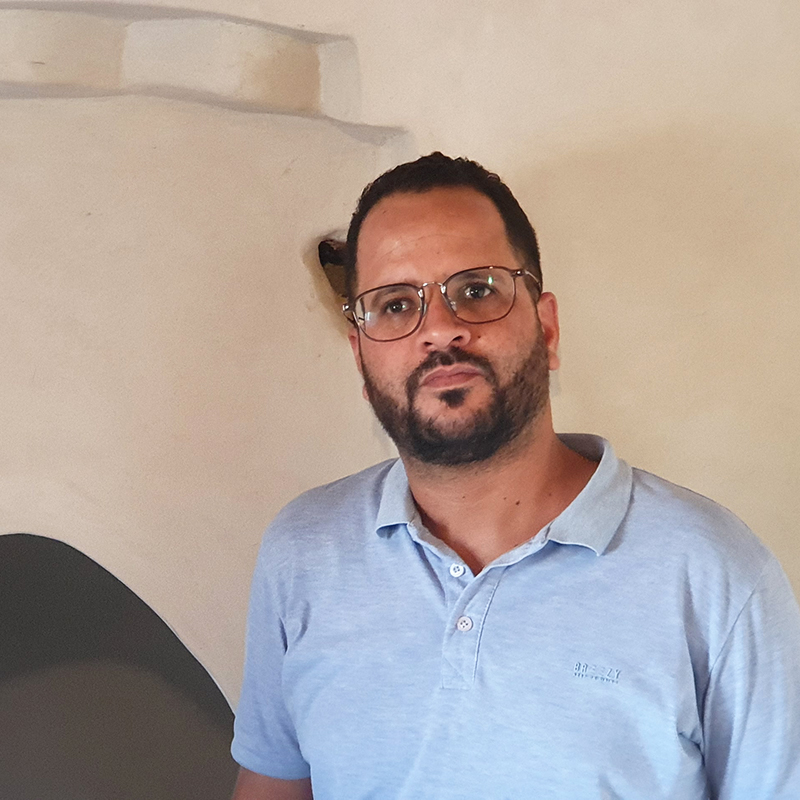
Transmission as a response to oblivion.
Finally, for the team at the House of Orality, the best way to protect this intangible heritage, faced with an obvious risk of erasure and oblivion, is to transmit it to as many people as possible, with a priority on younger generations.
The exhibitions presented will be made itinerant, and the funds collected during this first year of activity will be used to open a second venue adjacent to the House of Orality, where a center for the transmission of all these intangible skills will be established. Public workshops for awareness and learning around master artisans in residence will also be offered.
This focus on targeting the youth is ultimately the keystone of the entire project led by the NGO We Speak Citizen within the Ksar of Aït Ben Haddou.
The House of Orality began its work by collecting elements of the intangible heritage existing within the families of the Ksar of Aït Ben Haddou by the young members of this village community. And it is primarily a team of young people, including researchers, videographers, photographers, artisans, artists, tourist guides… both Moroccan and foreign, who have been mobilized by the NGO to build, step by step, this beautiful, vibrant, and creative synergy in service of Morocco’s cultural heritage.
The homage paid to orality is an invitation to engage in dialogue.
The efforts of those who have been involved in this adventure will soon find their fulfillment during the opening days of this House of Orality nestled in its magnificent stone and earth buildings overlooking the labyrinth of alleys and houses of the old and noble Ksar.
The orality presented there will then resonate in the hearts of visitors with the unique, warm voice of Moroccan heritage.
But as one crosses the threshold of this house, and in the sensory journey in which the visitor allows themselves to be guided, let it not be forgotten that orality, in all its forms and uses, is above all an affirmation of universality. Beyond our diversities and in the face of the weighty challenges before us, orality illustrates a humanity that communicates.
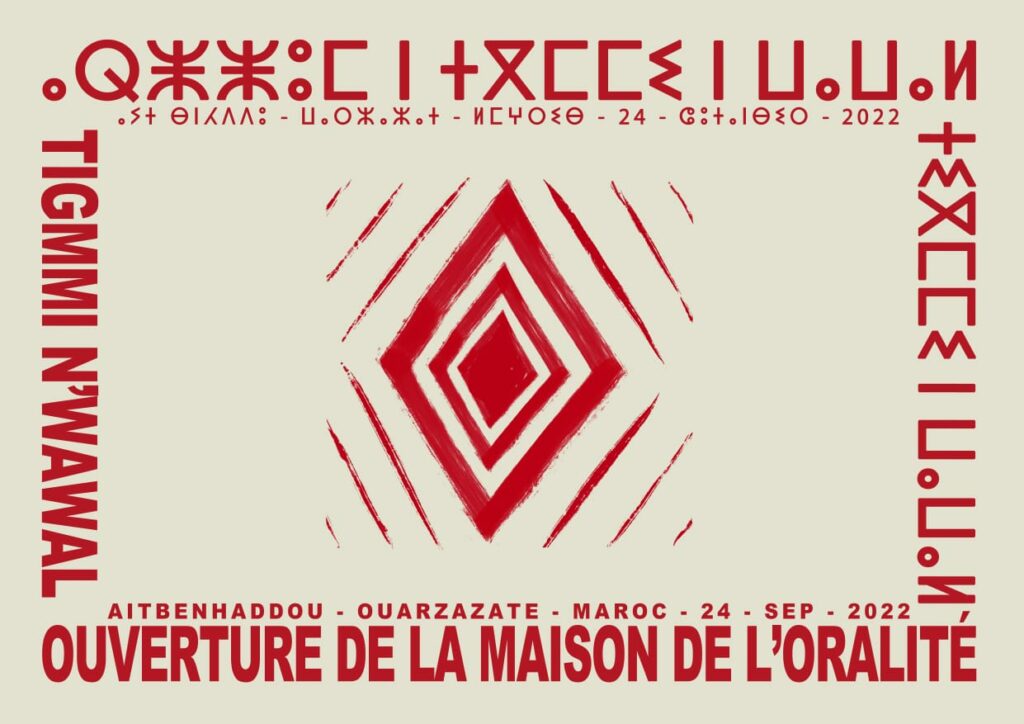
Contact : contact.maisondeloralite@gmail.com
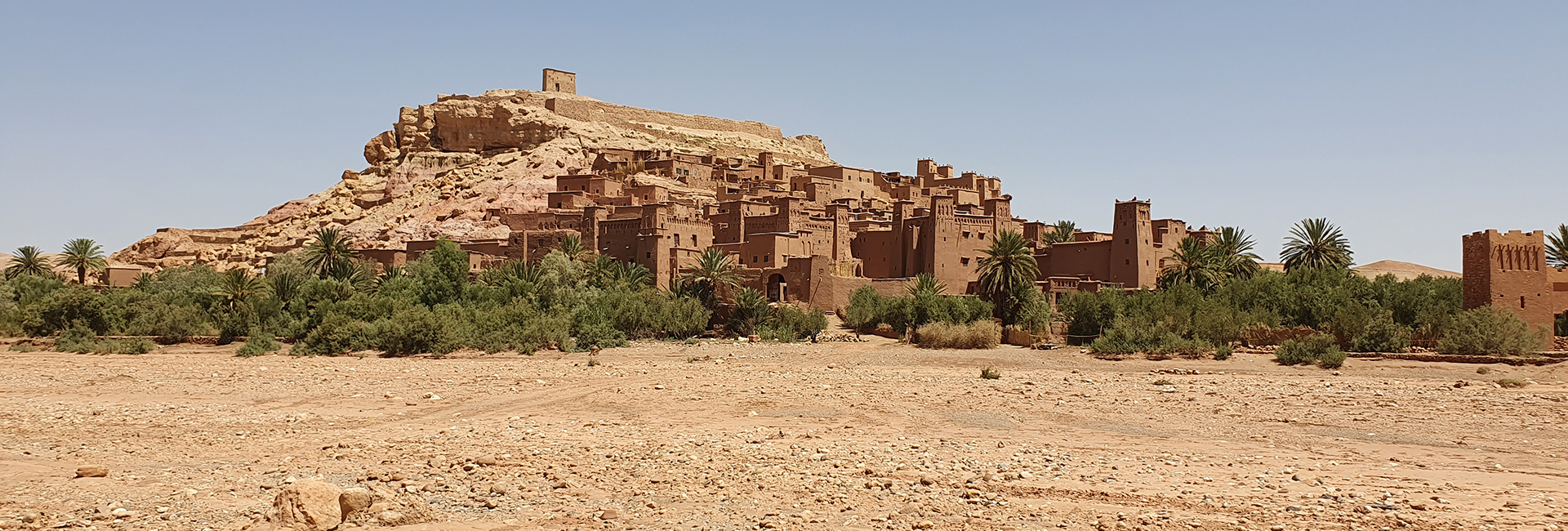

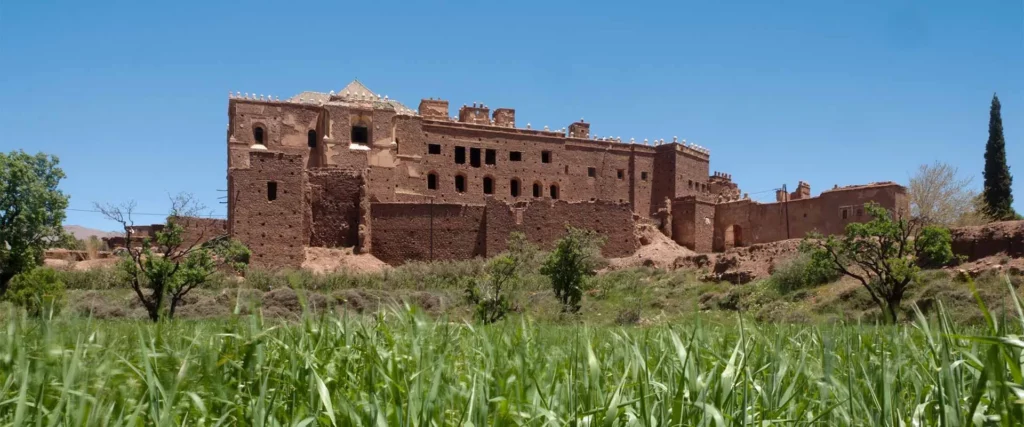
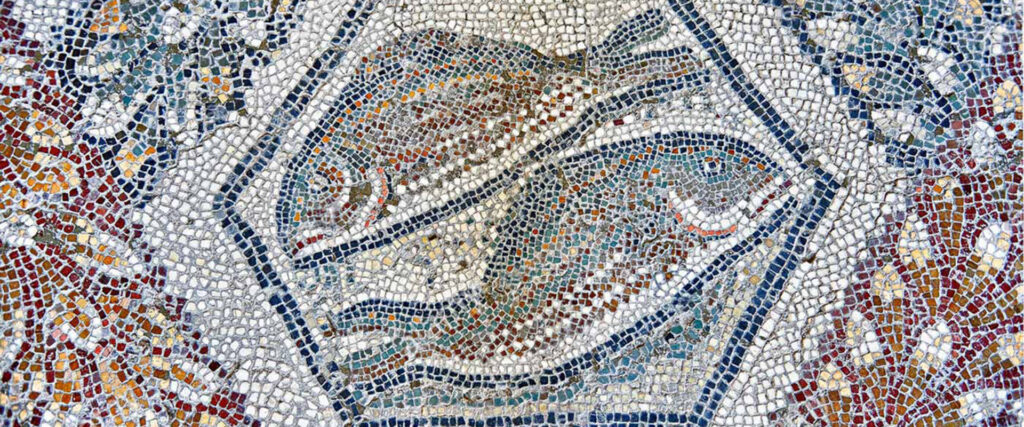
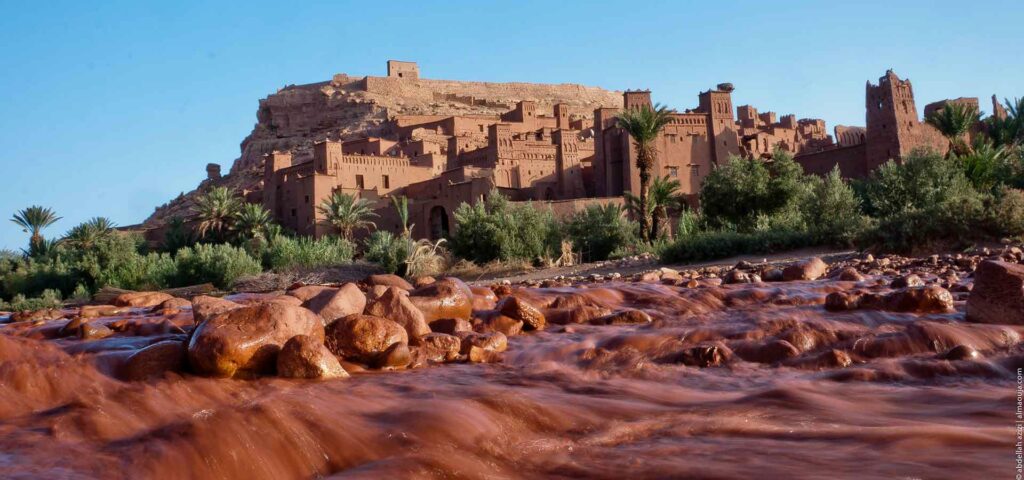
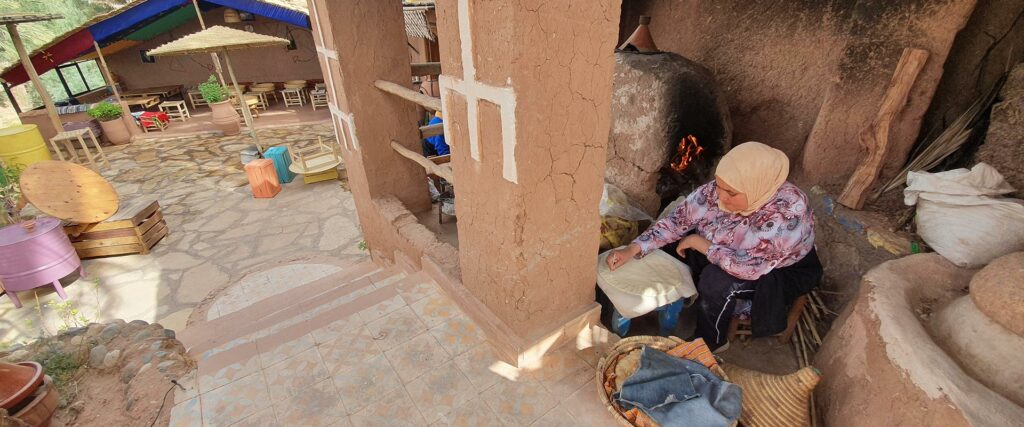
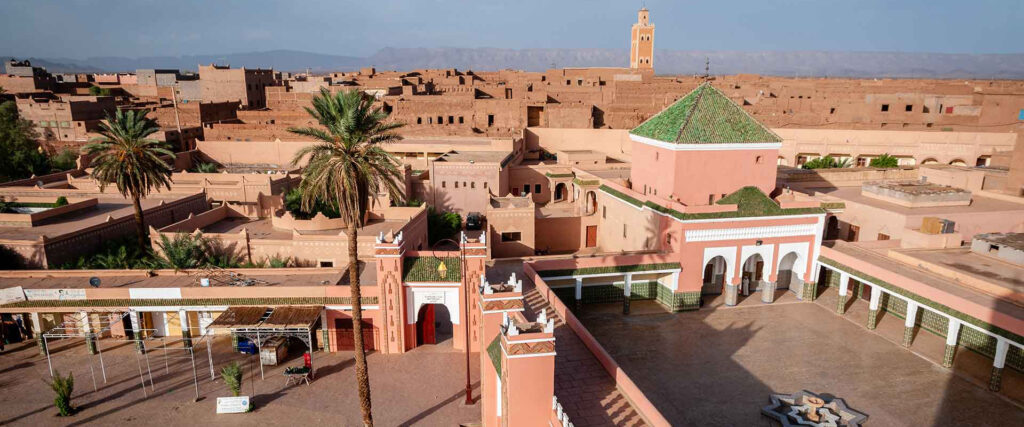
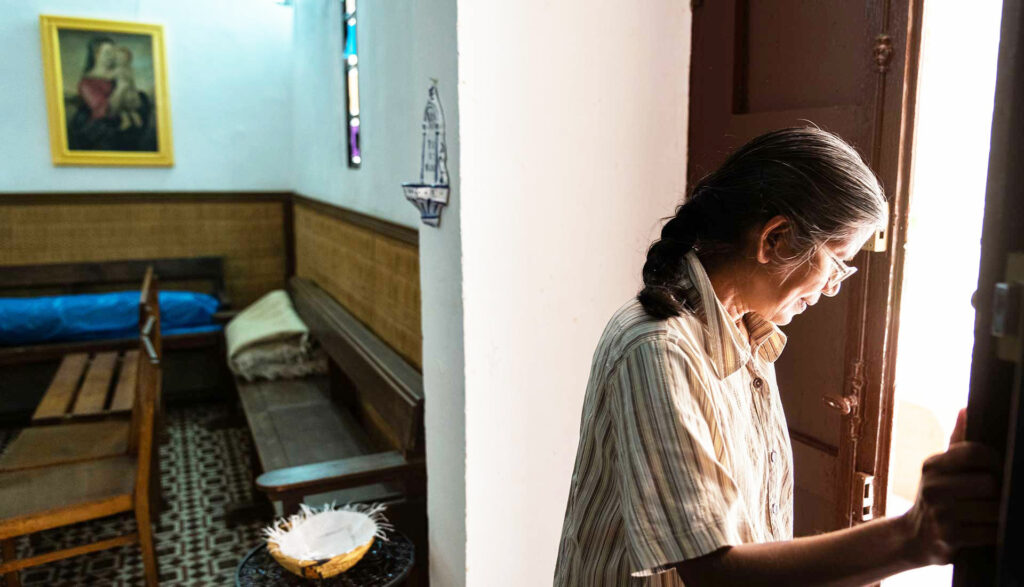
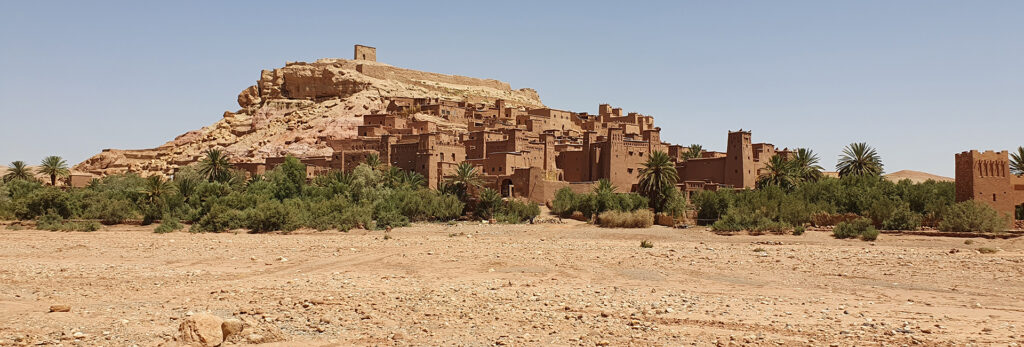
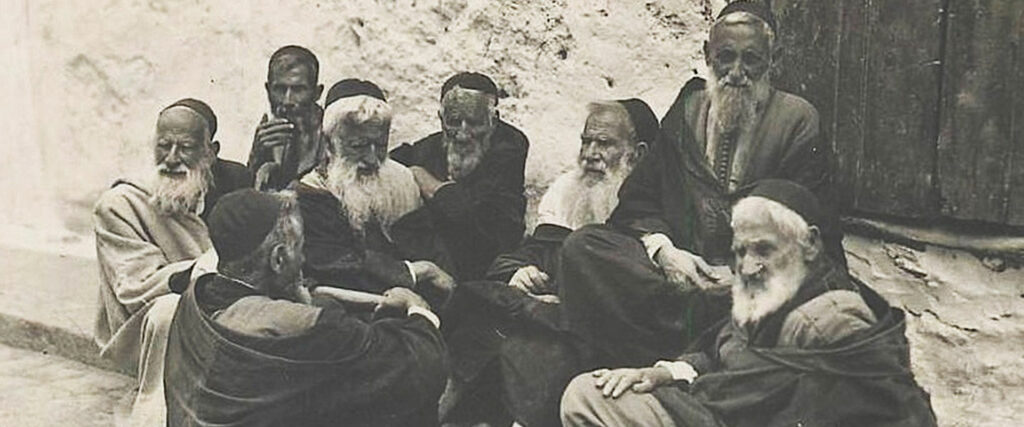
2 responses
What a wonderful initiative! It underscores the vital need we have to come together, to talk, to listen, and to hear each other. How welcome it is, especially after these times where we had to keep our distance from one another, this voice that reconnects the ties between humans!
What a beautiful project, looking forward to discovering the House of Orality in Ait Benhaddou. A fresh perspective on the territory and the rich hinterland filled with dormant stories, the source of our origins.